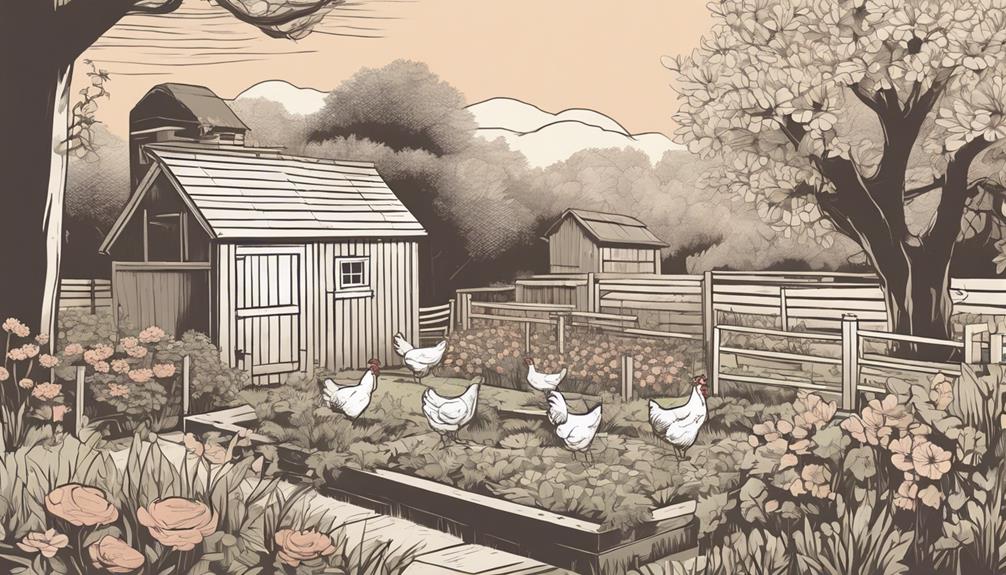See All: Backyard Farming
Free Backyard Farming Webinar…
You can grow food! This free webinar is for people who want the fastest and easiest ways to produce healthy and delicious vegetables, eggs, and meat. Because you know that growing your own food is like printing your own money…
Click Here To Watch The Free Webinar Now!
“I’m thinking about starting a backyard farm but I’m concerned about picking the right spot. My yard has different areas with varying sun exposure and soil types. What are the ideal conditions for site selection in a backyard farm? I’m in Portland, OR, with a climate that’s generally mild but quite wet in the winter. Can you guide me on what aspects to focus on?” Thanks, Andrew, Portland, USA.
What Are The Ideal Conditions For Site Selection?
So you’re contemplating setting up a backyard farm, Andrew? That’s fantastic! Getting the location right is key to a successful and thriving backyard farm. The right spot will make a world of difference in plant health, yield, and the overall ease of maintenance. Let’s break down the factors that will help you choose the best location for your backyard farm.
Sunlight
Sunlight is a crucial element to consider. Most vegetables and fruits require at least 6-8 hours of direct sunlight daily. Here’s why it matters:
“Plants use sunlight for photosynthesis, which is their way of producing food. Without enough sunlight, plants will grow weak and yield less.”
In your case, Andrew, Portland has both sunny and cloudy days. Observe your yard throughout the day. Which spots get the longest and most consistent sunlight? Use these for your sun-loving plants like tomatoes, peppers, and cucumbers.
Soil Quality
Good soil is the foundation of a healthy garden. The ideal soil should be well-draining, rich in organic matter, and have a balanced pH. Here’s what to consider:
- Drainage: Too much water can drown roots, while too little can leave plants thirsty. Look for spots where water doesn’t collect after it rains.
- Soil Texture: Sandy loam is often considered ideal. Avoid heavy clay or too sandy soils.
- pH Levels: Most plants prefer a slightly acidic to neutral pH (6.0-7.0). You can test your soil using a home kit available at garden centers.
Given that Portland’s winters are wet, ensure that your garden spot has good drainage to prevent waterlogging.
Wind Protection
Strong winds can damage plants, dry out soil, and erode topsoil. Choose a spot that offers natural windbreaks like fences, buildings, or hedges. If your chosen spot is too exposed, consider adding a windbreak using wooden structures or planting hardy shrubs.
Water Access
Consistent watering is crucial, especially during dry spells. Ensure your chosen site is within easy reach of a water source. Investing in a soaker hose or drip irrigation system can make your life easier and your plants happier.
Proximity to Home
Keeping your farm close to your house has several benefits:
- Convenience for regular maintenance.
- Better security from pests and animals.
- Easier to keep an eye on plant health and progress.
If your backyard is spacious, a spot closer to the kitchen can make access simpler and more enjoyable.
Space and Layout
Plan your layout based on the types of plants you aim to grow. Ensure you leave enough space for pathways and future expansions. Use raised beds if you want to improve soil quality and drainage. Starting modestly and then expanding is often more manageable and less overwhelming.
Climate Considerations
Andrew, the climate in Portland brings unique challenges and opportunities. The damp winters mean you’ll need good drainage and perhaps covered beds to shield from excessive rain. Use mulch to retain moisture during the drier summer months.
Local Wildlife
Consider local wildlife that might affect your farm. Deers, rabbits, and squirrels can be troublesome. Fencing or netting can protect your plants from being munched on by curious animals.
Neighborhood Rules and Regulations
Before you start digging, check if there are any local regulations or community guidelines regarding backyard farming. Some areas have rules about livestock, and even about the height of garden structures.
Microclimates
Your yard may have microclimates, or small areas with slightly different conditions. Utilize these differences to your advantage. For instance, a sunny wall can be a perfect spot for heat-loving plants, while a shaded area can house more delicate vegetables or herbs.
Final Thoughts…
Andrew, thanks for your question! Picking the right spot for your backyard farm involves considering sunlight, soil quality, wind protection, water access, and several other factors. Each backyard is unique, so take time to observe and understand the conditions in yours. Start small and expand as you get more comfortable and see what works best.
Happy farming, and may your backyard be lush and fruitful!
Return To: Backyard Farming
Free Backyard Farming Webinar…
Marjory Wildcraft: For 20+ years, Marjory has been a leader in survival & preparedness and wants to show you how to grow food in your backyard farm. This free webinar is for people who want the fastest and easiest ways to produce healthy and delicious vegetables, eggs, and meat. Because you know that growing your own food is like printing your own money…

